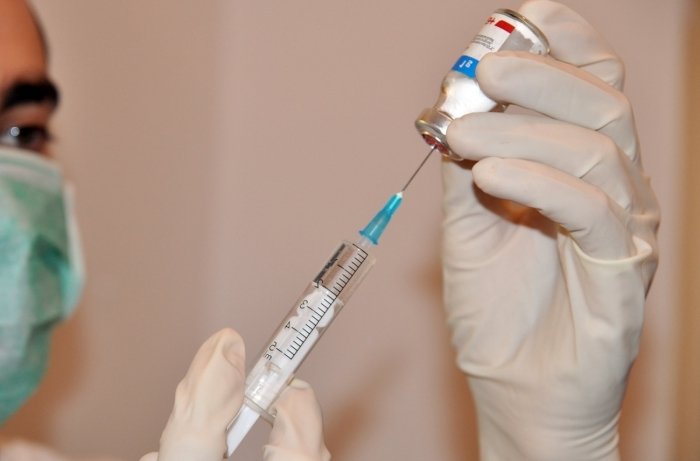 Adults With Attention Deficit Hyperactivity Disorder (ADHD)
Adults With Attention Deficit Hyperactivity Disorder (ADHD)
 If you’re an adult who suffers from attention deficit hyperactivity disorder (ADHD) the diagnosis is the first step towards finding treatment and managing your symptoms. It can be a challenge to determine where to begin.
If you’re an adult who suffers from attention deficit hyperactivity disorder (ADHD) the diagnosis is the first step towards finding treatment and managing your symptoms. It can be a challenge to determine where to begin.
A thorough ADHD evaluation begins with an extensive interview. This includes a review of your childhood to the present. This may include questions about your driving habits, your social, and personal habits.
Self-Assessment Tools
adhd testing online for adults is a neurological condition which can have a profound impact on your daily. It is imperative to seek out a professional diagnosis when you exhibit ADHD symptoms. This will ensure that you receive the most effective treatment and support.
There are a number of self-assessment devices that can help you determine if are suffering from ADHD. These include the Adult ADHD Self-Report Scale (ASRS) that was created by the World Health Organization, as in addition to a variety of other instruments that are available on the internet.
The ASRS is a self-assessment screening tool that requires you to indicate how often you experience the following symptoms: restlessness, fatigue anger, impulsivity and difficulty in concentrating. It is possible to complete this online test in less than 5 minutes.
This tool can be used to help you determine if have ADHD. It is not designed to replace the need for a consultation with a qualified medical professional.
Another thing to consider is that these tests are not able to identify everyone who has ADHD. Certain people with positive tests may not be suffering from ADHD. The ones who do have ADHD will exhibit symptoms that differ from those who haven’t been diagnosed.
The tests are subjective, so it is important to include important people in your life. To give a more thorough assessment of your conduct, you should ask your spouse fill out the forms.
These screening and rating scales are commonly used to test children with ADHD. The scores and responses to these tests do not provide sufficient information to diagnose an individual child with ADHD However, they are an important component of the assessment process.
The ASRS-v1.1 can be used to screen adults for ADHD. The ASRS-v1.1 is a longer version of the ASRS requires you to rate your experience using the scale of «never» to «very often» for symptoms of 18.
If you score high on the ASRS-v1.1 test, it could be time to see a physician. Based on the results, your doctor is able to determine if you are suffering from.
Diagnosis
It is essential to speak with a professional in mental health in the event that you suspect you have ADHD. They can offer a formal diagnosis and recommend the best treatment options. They can also provide assistance and assist you in finding help sources.
A diagnosis of ADHD is determined after an extensive clinical interview using information gathered from many sources. These include symptoms checklists, standardized behaviour ratings scales, and symptom lists. Interviews with family members as well as people who know the individual are also conducted. In addition, tests of academic ability and cognitive capacity are conducted.
The most accurate method to determine the severity of Adult add adhd test — https://iampsychiatry53533.theblogfairy.com/28293150/15-things-you-re-not-sure-of-about-adhd-online-test — ADHD is by a careful evaluation of the clinical condition, conducted by a specialist in this condition who takes his or her time to gather information and evaluate the patient’s condition. The process may take several sessions, typically over a few months.
A doctor will take a detailed interview of you as well as anyone who is familiar with you for example, your spouse or parent, or teacher, coach, or nanny for children. This information helps the doctor determine which tests, if any, should be performed to rule out any other condition that may be causing your symptoms.
During the interview, she’ll ask you about any changes in your behavior over the past six months that may be related to your symptoms. She will also inquire about your relationships with others, such as colleagues and friends. She may also ask about other illnesses or conditions that affect the behavior of those with ADHD.
When she’s satisfied that you have a pattern of at least five symptoms for both the inattention and hyperactive-impulsive presentations, she will make a formal diagnosis. This diagnosis will help her determine the kind of therapy and strategies to cope that are most efficient for you.
Your doctor may suggest additional tests, like broad-spectrum scales and tests for psychiatric disorders, to check for any other conditions that could affect your behavior. These tests are used to rule out other disorders that can cause similar issues as ADHD like mood or anxiety disorders.
Treatment
ADHD symptoms can be challenging to manage in adults, and it’s important for people with this illness to receive a clear diagnosis. This will aid the patient and their loved ones to identify the most efficient treatment strategies.
The patient’s past history and other medical conditions are used to determine the condition of the patient. Psychological tests are also used. These tests can be used to determine whether there is a learning disability that may cause similar symptoms as ADHD or in the event that there are other mental health disorders which resemble ADHD.
To gain a better understanding of the symptoms a patient has Many doctors utilize an assessment instrument such as the Adult Syndrome Inventory (ASRS-11.1). However, they must also interview the patient, along with relatives or other who knows them well for more in-depth information about the patient’s behavior and to determine how much impact ADHD symptoms affect their lives.
Clinicians will make sure to inquire about every aspect of the patient’s life during the interview. This includes work, home schools, relationships, and even home. Patients should be honest and transparent about their struggles. They shouldn’t be afraid or ashamed of criticism.
A trained clinician will then observe the patient’s behavior , and create a written report. They will observe the way the patient behaves and how they take to complete their tasks, if they are having difficulty focusing and paying attention to details, how often they fidget with their feet or hands, or how quickly they speak.
If a doctor suspects the patient is suffering from an undiagnosed medical condition, like a thyroid disorder or seizures, they will conduct a physical exam and other tests to rule out these possibilities. The doctor will also take into consideration any other conditions that might be causing symptoms of ADHD including anxiety or depression.
Once a diagnosis has been made, the doctor will suggest options to assist you in managing your symptoms and improve quality of your life. These options include medication and behavioral therapy as well as strategies for coping that are tailored to your specific goals and requirements.
Support
There are many resources to help you diagnose ADHD if you suspect it. They include self-assessment tools, such as the World Health Organization* adult ADHD test and mental health professionals.
An ADHD diagnosis can be made by an experienced mental health professional via an evaluation for diagnostics. The first step is to ask you about your symptoms and any issues they have caused in your life. To find out more an interview with a doctor could be conducted by an adult sibling or spouse.
Your doctor could also recommend tests to determine if you suffer from ADHD symptoms. These tests may include attention-span and symptoms checklists.
If your doctor has diagnosed you with ADHD the doctor will provide treatment to help combat the symptoms of the disorder. Medication is the most common treatment. Psychotherapy (mental health treatment) and lifestyle changes are also effective.
Certain people combine these strategies to manage ADHD. Talking to a psychiatrist or doctor about your options is important. You can also seek out support and advice from others with the same disorder.
You can also join a local support group or an online national ADHD forum. These groups are full of people who share their experiences and offer suggestions.
Many of these organizations offer counseling sessions free of charge for those who need these. They also offer assistance services like Skype or telephone consultations with counselors. Counseling can be very helpful in managing the symptoms of adhd adult testing and improving your overall quality of life.
ADHD treatment is an ongoing process. Your clinician should be able to check in on you regularly to make sure that the medication is functioning as intended. You should also be advised to report any changes to your condition or any side effects you experience due to the medication.
ADHD sufferers often require additional treatments for ADHD, like accommodations at school or work. These are devices or changes in the workplace that allow you to perform as well as you can at work and school, just as a step stool allows the person who is small to reach heights that a taller person would not.




